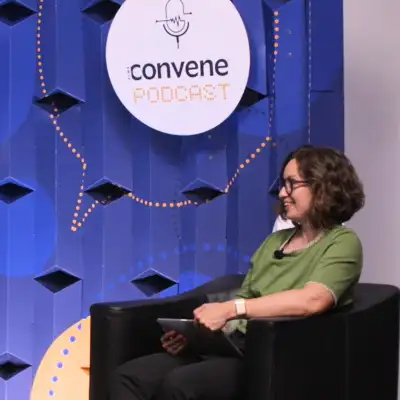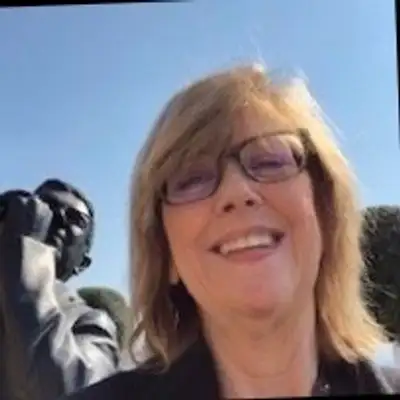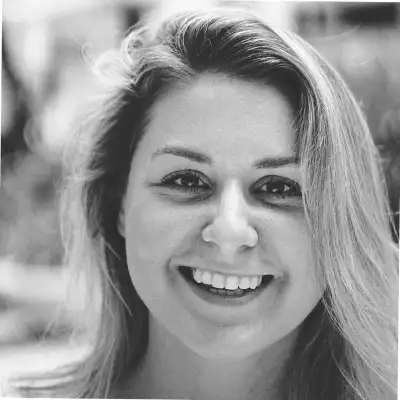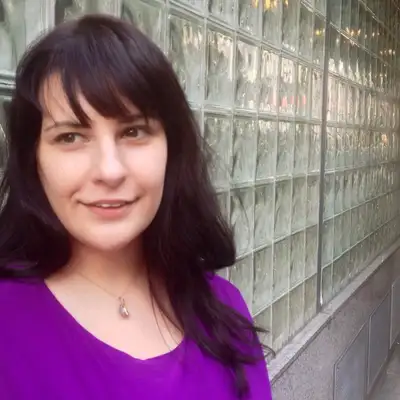Creators and Guests
What is PCMA Convene Podcast?
Since 1986, Convene has been delivering award-winning content that helps event professionals plan and execute innovative and successful events. Join the Convene editors as we dive into the latest topics of interest to — and some flying under the radar of — the business events community.
Convene Talk, ep. 78/Sept 12, 2025
*Note: the transcript is AI generated, excuse typos and inaccuracies
Magdalina Atanassova: This is the Convene podcast. It's time for another Convene Talk. Kate, what's your pick for today's discussion?
Kate Mulcrone: Today we are going to talk about the short doomed history of the Fyre Festival.
Earlier this year, Billy McFarland,
who was the creator of the original Fyre Festival and served a six year prison sentence for fraud,
announced that he was going to Host Fyre Festival 2 May 30 through June 2.
The summer that has just passed in Mexico.
And just like the first time around,
it was an absolute disaster until it was canceled.
So just a quick run through the timeline for anyone who didn't realize there even was a Fire festival too.
In early February,
the website launched with the location of Isla Mujeres in Mexico.
And then two days later,
the resort said they had never heard of them.
A month later, Billy McFarland held a press conference on Instagram with a new location announcement of Playa del Carmen, also in Mexico, and 40 artists on the bill with a plan to have about 1,800 attendees within 24 hours.
The destination put out a statement on X that said they had never heard of the festival and there were no plans filed with the local authorities whatsoever.
And then April,
and at this point it's like barely a month out.
People who had bought tickets got a message that the event was still on and that there would be a new location announced.
And then just a few weeks later,
the website puts up an announcement that the festival is postponed.
Here's where it gets crazy.
On April 23rd of this year,
Billy McFarlane puts up a letter and you can still read this on the website,
saying that he's selling the entire Fire brand and that includes the intellectual property, the trademarks, all social media accounts, and the email and text lists with attendee contact info as well as documentary film footage.
And then finally in July,
he sells the entire company on eBay in like, just like a regular eBay auction.
There were 175 bids from 42 bidders, all anonymous. We know how eBay works and he got $245,300.
So the reason I wanted to talk about this on the podcast is Barbara, you did an amazing story about event planners reactions to the first Fyre Festival and then the two documentaries that were made about it.
I think that similar questions arise here.
How, first of all, how does this entire fiasco highlight why event planning is best left to professionals?
Do we think that the firebrand is worth what some anonymous person paid for it?
And then was this always a scam was this guy just trying to get famous and stay famous,
or did he really think that he could pull this off?
And so I would just love to open it up to everybody.
What do you guys think about Fyre Festival 2?
Barbara Palmer: I'll weigh in just because I've been looking at Billy McFarland's Instagram account and he's got P Y R T Billy,
which I believe P Y R T stands for Pay restitution.
He has to pay $26 million in restitution. So I feel like fire two is just desperation,
you know, I think the reasons for the first Fyre Festival were hubris and just this over valuation of social media influence.
And what did they buy for 245 roughly thousand dollars? I think it is still this clique on Fyre Festival and that he lacks trust in his brand is an under.
An understatement.
What has been interesting to me at this mom is to look at the contrast with Burning man,
because Burning man is a disaster this year in terms of there's dust and they're expecting thunderstorms and there's posts now about the mud.
But Burning man is radically transparent about what people are going to face.
They're like saying, don't come here if you're not able to take care of yourself.
They are radically transparent about the downsides.
And that's like just to me, 180 degrees from what happened at the first Fyre Festival,
which if you're not a person that bought a ticket, it's hard not to, like,
just marvel at the distance between what was promised and what was delivered.
So I feel like it's partly just this hubris about social media influence and then how it's so easy to deceive people online and if you're starting something.
And we've had other stories about these festivals that come up that are radically different than what's promised.
And I think that people are a little bit more savvy now.
Magdalina Atanassova: This whole story reminded me of another festival,
and it wasn't even a festival at first. It was just a joke event on Facebook. And Netflix did a documentary on that.
It was called storm area 51.
And somebody just put a fun post and created an event on Facebook saying, hey, how about we storm area 51 and who's going to stop us if all of us show up?
This guy posted it and he had like, I don't know,
very few followers. And he did not expect it to become a thing, but it apparently became a thing and it became an event and then became A festival and became so many other things.
And it just spoke to me about this crazy online phenomenon where just people randomly pick things up and they create a whole shablam out of it and they decide to follow up later on.
And there were people that actually showed up on the set date and they.
Of course it was a joke. Nobody wanted to storm Area 51, but it apparently costed a lot in terms of preparation because authorities did not know what will happen. They were preparing for thousands to show up even more and actually storm area 51.
So I'll put the link for those that have not seen the documentary. It's.
It's scary, it's funny, it's all the things. And for event planners, I think to be touching on quite a few nerves and they will be. There are triggers there, so warning for event planners.
But it's interesting how these things can really escalate.
And Kate, you posted this question,
is it a fraud? And how is market the side of marketing here?
And I feel a lot of times event planners really rely on the marketing side to, you know, to get to their audience.
But that's the example of,
well, everything else should come first. Marketing is just one side.
So yeah, it's. It's an interesting thing. I did not know that he tried to do a Fyre fest too. And it's crazy. And I'm so sorry for the people that fell for it.
I hope nobody gave money for that. I mean, that's insane.
Purpur.
Barbara Palmer: I think it got canceled pretty fast.
You know, it just made me think. Well, the other thing I was thinking about is that I think from the very beginning, I don't remember the artists who were going to appear at the first Fyre festival and I don't know the artists that were going to appear at the second.
But it seems to me,
and I don't know if this perception is accurate, but that it was to make money,
you know, it was like luxury. It was.
It was luxury.
And I'm thinking about the first festival failure, the historic one, Woodstock.
Like I feel like Woodstock was just awful and it had this purpose that I like. I don't think like the week after it happened, it was apparent how much purpose there was to it.
But I just feel like if you don't have like content or, you know, a reason that rises above luxury,
I think it's just a little hard to sustain it when the bad things happen. Chad, I'd love to hear what you think about this.
Jennifer N. Dienst: No, I was just gonna throw in that like the first iteration Ja Rule was attached to it.
And if you're a millennial, you, you know, love Ja Rule. Like, it's just a fact. Yeah,
that's like the soundtrack to my teenage years.
And he's a big deal. Like, he's like, truly. And as a.
To the American audience, if you're in like, you're, you know, back.
This was like the 2010s, I think, when, when they tried to have it going 2017.
So, I mean, people, you know, he was still pretty big then. He was well known, like, so he was also,
I believe I'm kind of doing a quick Google search. He was a co founder of IT too.
And there were pretty big artist attached. I'm blanking on who they were, but yeah, it wasn't. I mean, that's, that's. I think that's why they were able to get,
you know, ticket sales, because they had some big names attached to it. But yeah, it sounded like for the second iteration, they just.
There wasn't really anything attached to. I'm sure, like, nobody wanted their name associated with it.
Kate Mulcrone: Exactly. Like, I dug and dug and dug and there was no information whatsoever about how many tickets were sold. And so my guess is it was almost none.
Magdalina Atanassova: I'm glad to hear.
I mean, people just don't burn your money.
I have a question to all of you. So what do you think of Andy King, who was on the Netflix documentary for Fyre Fest 1? He was the organizer and,
you know, he's still involved in the industry. He still does what he does. Like, what's your feeling towards him?
I don't want to put him on the spot, you know, in a bad way. But still, I'm curious, what are you thinking about him? Because he is a part of a sustainability course that's being offered to the industry,
and I don't know if I want to take it.
So he showed up in a positive light to some extent.
Kate Mulcrone: So any takers when I watched the documentaries originally could not understand why he just kept ignoring red flag after red flag after red flag that anyone who's ever planned an event would be like, we don't have time for this.
These logistics aren't right. Like, I don't.
I guess, I guess I think that he just saw the cameras running and didn't want to seem like a jerk.
And so he just didn't really do his job.
But yeah, I, I don't know that I would want to take his sustainability course either,
because part of being a meeting planner is having the tough conversations at the right Time.
And he doesn't have that skill.
And that, to me, is the number one thing you would need if you were trying to get someone to cooperate with your sustainability initiative.
Barbara Palmer: Yeah. So here's what I think, because I haven't seen Andy King since the documentary,
so I don't know what he's done since then.
I guess I'm just like a believer in second chances, if you learn from your mistakes.
And I just think it would be super interesting to know how he has been able to rise above that reputational.
I don't even know how to.
I'm not going to say,
not going to characterize it, but not good for your reputation. So how did he rise above? That is a really interesting question.
Billy McFarland.
It just kind of does make my chest hurt to think about him because he started on Instagram and he started every.
Every day.
It's like the. The pay restitution Instagram account. He's walking and talking every day until he pays off $26 million.
And I don't know. That just really makes me. It's just.
Yeah.
Kate Mulcrone: Does he have, like, a job? I mean, don't you have to get a job when you're paroled?
Barbara Palmer: I do not know. I think that what. One of the questions you posed, Kate, was, what did people buy with the 245,000? And I think that.
Kate Mulcrone: That, I think is really at the heart of it.
Barbara Palmer: I think they bought the fact that we're still talking about it and how many years ago did this happen? We're still like, oh, my gosh.
I think they bought that.
It could be that he's going to be able to then charge for appearances or,
you know, continue to consult on milking the fire brand for documentaries or merchandise that takes advantage of the.
Kate Mulcrone: You can still buy the merchandise.
Magdalina Atanassova: Yeah.
Barbara Palmer: I don't know how you can start with that much debt and damage to your reputation and pay off $26 million. I guess I will say that he's not under the covers in his bed and, you know, so he's the story, the saga continues.
But,
yeah, there's a lot of consequences to that first debacle.
Magdalina Atanassova: But he did show us the power of influencers in a very significant way.
And I'm sure those that bought the brand,
they would really make good use of all those lists.
And that's probably what they actually bought. That's what I would take from it.
Kate Mulcrone: That was what I zeroed on as well. And I feel like it's kind of shocking to me that you're allowed to sell that. And maybe I'm naive to not realize that.
Although maybe with that audience, they're not even still using the same email and phone number from the first Fyre Fest. Who knows?
Barbara Palmer: I mean, it does show the power of influencers, but it also shows the limitations of influencers. It, you know, exposes that it's this and just this.
It's like a cautionary tale about what are you really selling when you sell your influence and what do you stand for,
especially now.
Magdalina Atanassova: I don't know if you've seen it, but it seems that Instagram specifically is flooded with fake events and all these AI deep fakes of very popular people speaking. And you can see it's the deep fake.
You can see it's. It's not real person saying, inviting you to an event I recently got,
I believe it was an alleged event by Tim Ferriss who was inviting everyone to buy something that he created in this event. He would show you how to use that and make millions and was a big.
So easy to see through.
And yet this is just the beginning. And it's easy to understand that it's a fake,
but this will only progress and become much more difficult to understand and make a clear cut, you know, differentiation between that's the real person and that's a real event.
And it's, it's scary. I've a few times I had to check a few events with popular people if it's a real event. And of course,
thank God, still the Internet does its thing and it tells you so it's a fake. Don't go there. But scary, scary world. Yeah.
Barbara Palmer: Well, I know we've been talking about this for I think a couple of years now, just about like trust,
like just, you know, like if you lose trust,
it's hard to get it back.
Like it's slow to build and when you lose it,
very hard to get it back.
And I don't know about the rest of you, but I've become extremely suspicious of almost every email in my inbox.
You got to give me a really good reason to click on it because of the danger.
I'm sure there are things that are in my inbox that I delete that are probably valuable,
but it's like the cost of clicking on everything is too high.
And so I don't know. To be continued. The story of trust and influence.
Magdalina Atanassova: Yeah. Kate, do you have anything else to add?
Kate Mulcrone: I would just say that our discussion really highlights why event planning is a profession where you need a lot of specialized training and why no matter how much money you have to pay back that you stole from people,
you can't just decide to do it.
Magdalina Atanassova: Yeah, that's a good end to our conversation. Thank you, Kate, for bringing or reviving Fyre Fest again, that whole story. Thank you.
Barbara Palmer: Thanks. That was fun, Kate.
Magdalina Atanassova: Thank you. Remember to subscribe to the Convene Podcast on your favorite listening platform to stay updated with our latest episodes. For further industry insights from the Convene team, head over to PCMA.org/convene. My name is Maggie. Stay inspired. Keep inspiring. And until next time.



